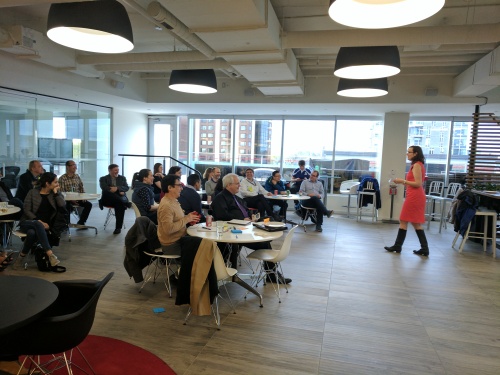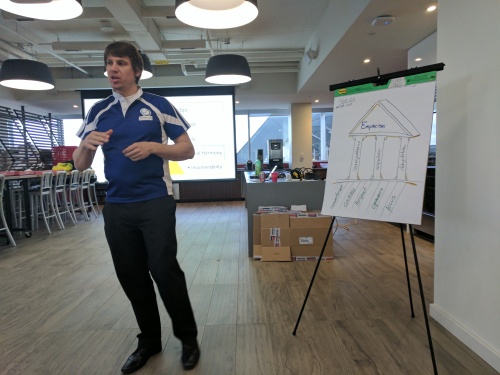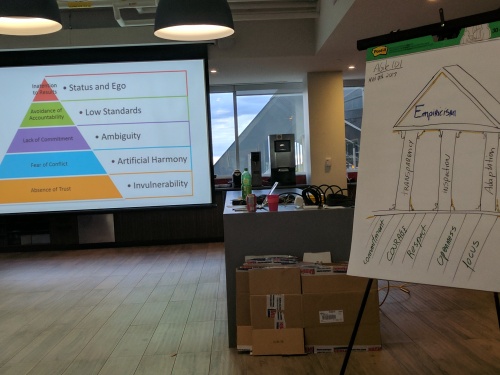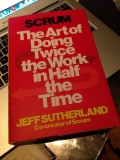“Are you telling enough truth?” or, “Honesty & Openness for Agile Teams” Honesty was the main topic of the May Meetup session for the Ottawa Agile Community. Amanda Holtstrom presented tips for maintaining openness in teams and encouraged participants to experiment with these practices in their own groups. (here is the Presentation)
“Openness” is one of the key values set and manifested by any Agile Team. Openness to feedback, openness to recognize any issue, openness to accept changes, and openness to keep improving! This is a quality which helps Agile teams to always move forward and achieve their desired results. Indeed, openness is an important value for Agile teams to commit to!
To be honest within an Agile team is a core communication need and key to the overall work process. Honesty contributes to the overall Transparency of what you’re doing as a team, and helps you proceed with a fair process and good result (Inspection), as well as ensures equitable Adjustment.
Transparency, Inspection, Adaptation – Agile way of process organization which has some similar conceptual bases with Empiricism – by notion: Empirical evidence is the knowledge or source of knowledge acquired by means of the senses, particularly by observation and experimentation.
The idea of empiricism applied to Agile values was presented by Simon Bourk. While we all agree on Agile Values it is important to think and try to prevent potential problems that might cause the failure of any team: Absence of Trust, Fear of Conflict, Lack of Commitment, Avoidance of Accountability, and Inattention to Results. (see Pyramid image presented by Simon)
To overcome failure and find improvement requires team members to be honest, and communicate that honesty in a productive way. Giving a feedback is an invaluable tool: it can be immediate or retrospective, and can come in may different forms. Whichever style you use, whether positive or negative feedback, it should always be given in a way which is constructive to improving the team. In my own experience, helpful feedback focuses on the cause and effect of a situation, provides suggestions for improvement, and motivates and encourages the person to do better going forward.
Amanda closed the meetup with a presentation of tactics for efficient communication, and suggestions for coming to agreements when there is disharmony among team members. Following the presentation, we had an interactive discussion between participants.
The only way to come to a consensus on any issue is the tolerance of different opinions and, when faced with disagreement, keeping attentive of your opponent. It is just as important to have a fair perception that your opponent also tries to find and present his way to change something in order to improve something. Understand that you both have the same target: it’s just a matter of how to get there. Recognize and acknowledge each other’s arguments, and work to consolidate them to reach a mutually agreeable solution.
Honesty and communication are the keys of success; the breakdown of either are often the cause of failure. At our June Agile Ottawa Meetup session we will continue to explore real-life examples of failure and experiment with ways which lead Agile teams to success. I kindly invite you 🙂 to June session dedicated to Pitfalls and Successes of Self-Organizing Teams.
.

Amanda presents Communication Tactics

Simon presents the Empiricism

Pyramid




